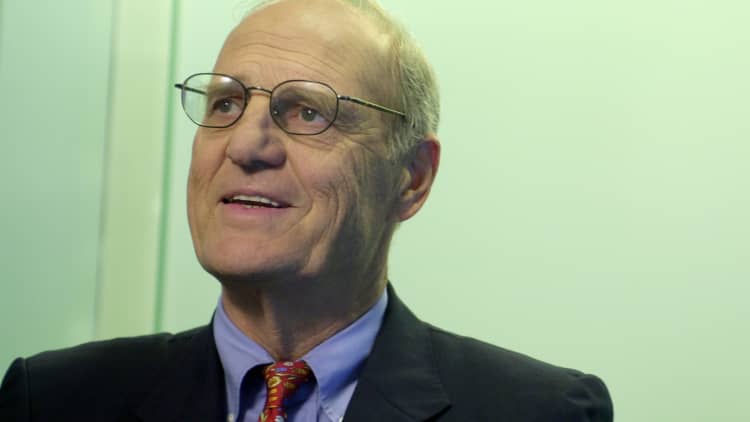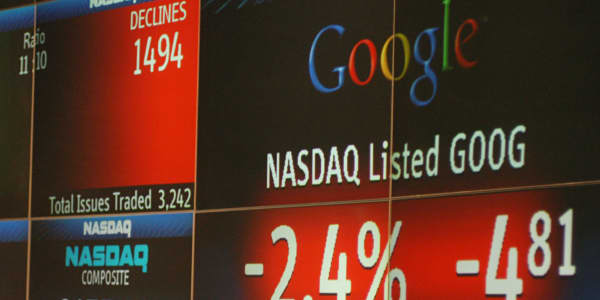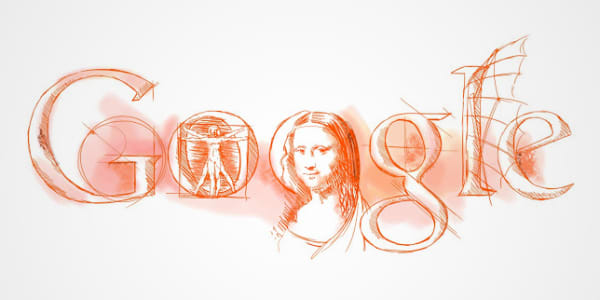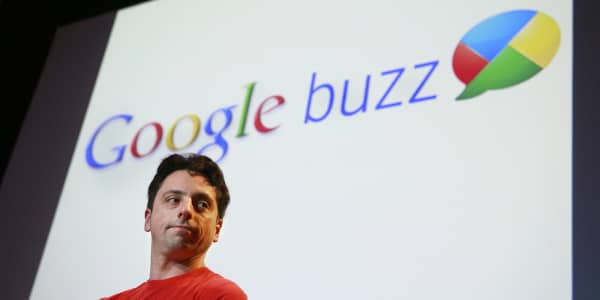
If Google had used a traditional IPO process when its stock debuted 10 years ago, it would have made less money, the Silicon Valley pioneer who crafted the Dutch auction deal told CNBC on Tuesday.
"Some of the original price ideas from the traditional bankers were $60 to $70 a share," Bill Hambrecht said in a "Squawk Box" interview, a decade to the day since Google became a public company. That range would have been about 30 percent less than the actual pricing level. The search giant debuted on Aug. 19, 2004, after 19.6 million shares were priced at the low end of the revised expected range at $85 each, which valued the company at the time at $23 billion.
Read More5 things that could derail the Google juggernaut
"The two major buyers—the guys who really made the auction work—were Fidelity and Legg Mason, Bill Miller," Hambrecht said. "They're the guys who put in the bids at $85 that really solidified [the process]."
Google stock closed at just more than $100 a share on its first day of trading—a solid 18 percent increase but not the blowout day that had been expected for one of the hottest offerings since the dot-com bust of 2000.
All these years later, it seems unbelievable that at the time, there were questions surrounding what Google even did. "It was very controversial. There were an awful lot of people that didn't get it," Hambrecht recalled.
But a decade later, all that's changed. Google is now a household name, and on a split-adjusted basis both classes of its stock traded just under $600 a share as of Monday's close. The company has a market value of nearly $400 billion.

To put the Google story in more context, Hambrecht defended the auction process for IPOs, using Facebook's troubled 2012 as an example. "Facebook shows how difficult it is to price at the market without an auction." He added he did not view the social network offering as a success. "They lived through a year of real pain."
In 1998, he founded WR Hambrecht + Co., to use what he terms the "OpenIPO" process to level the playing field for start-ups looking to tap capital markets. "The model is still very viable," but he acknowledged it's tough to compete with the big, traditional banks. "We are now back in the game in the small deals where we're not competing with the bulge firms."
Read MoreRememberGoogle's weird IPO? Why it never took off
During the heydays of then Hambrecht & Quist, which he started in 1968, he presided over Apple's 1980 IPO and that of Adobe Systems six years later.
"[Adobe] was an example of a little company with a great idea that Steve Jobs wanted to buy it, came in bid $40 million for it. We had to do something. So we took them public for $5 million. So everyone got a little liquidity," Hambrecht recalled Tuesday on Google's IPO anniversary.
—By CNBC's Matthew J. Belvedere





